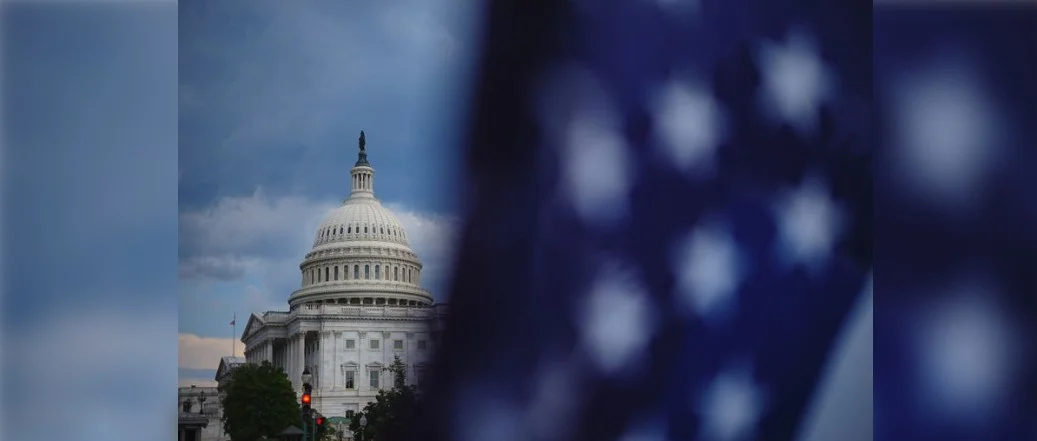WASHINGTON, June 30 —A high-stakes, all-night Senate debate over President Donald Trump’s sweeping tax and spending bill dragged into Monday morning, with the vote delayed as Republicans confronted growing pushback—from Democrats, budget analysts, and even within their own ranks.
The package, a centerpiece of Trump’s economic agenda, includes more than USD 4 trillion in tax cuts, along with USD 1.2 trillion in spending reductions, largely targeting Medicaid and food assistance programs. Despite intense pressure from Trump to pass the bill before the Fourth of July, Republicans narrowly advanced it through a Saturday procedural hurdle after tense last-minute negotiations.
Trump had personally phoned holdout senators, and Vice President JD Vance made an in-person appearance to keep the measure afloat. But the fragile support came at a cost. Senator Thom Tillis of North Carolina, facing fierce criticism from Trump, announced Sunday he would not seek reelection after declaring his opposition to the bill’s deep Medicaid cuts.
In an emotional speech on the Senate floor Sunday evening, Tillis said, “We could take the time to get this right. But until then, I remain opposed. We are betraying the president’s own promise not to take health care away from Americans.”
Democratic senators, meanwhile, mounted an all-night resistance. They forced a 16-hour reading of the bill’s 940 pages and filled the chamber with fiery speeches throughout the night, even as Republicans remained largely absent from the floor.
“This is reckless and irresponsible,” said Senator Gary Peters of Michigan. Senator Bernie Sanders of Vermont called it “a gift to the billionaire class,” accusing Republicans of “literally taking food out of the mouths of hungry kids while handing tax breaks to Jeff Bezos.”
At the heart of the criticism is a new analysis from the Congressional Budget Office, which estimates the legislation would leave 11.8 million more Americans uninsured by 2034 and add nearly USD 3.3 trillion to the federal deficit over the next decade.
Despite the warning, Trump urged his party not to overreach. “Don’t go too crazy!” he posted on social media. “REMEMBER, you still have to get reelected.”
Still, House conservatives and some Senate Republicans are demanding even steeper cuts, particularly to health programs, deepening the divide within the GOP.
The bill also proposes eliminating billions in green energy tax credits, which Democrats argue would devastate clean energy industries across the country. In exchange, the bill provides a USD 350 billion boost to border and national security spending, including increased funding for deportation operations—paid in part by new fees charged to immigrants.
Senator Patty Murray of Washington, the top Democrat on the Appropriations Committee, slammed Republicans for what she called “magic math.” She criticized their decision to treat the expiring 2017 tax cuts as “current policy,” which allows them to sidestep counting the cost of extending them in deficit projections.
“In my 33 years in the Senate, things have never—never—worked this way,” Murray said. “Go back home and try that game with your constituents. See if it works when you’re balancing your household budgets.”
The Senate’s Republican majority—53-47—leaves little margin for dissent. Leaders can afford to lose only three votes, a reality that makes every defection consequential. In the House, Speaker Mike Johnson has instructed lawmakers to remain on call for a potential return to Washington this week if the bill clears the upper chamber.
Trump’s grip on the party has added tension to the debate. After Tillis voiced concerns about Medicaid cuts in North Carolina, Trump publicly rebuked him, saying, “He has hurt the great people of North Carolina.”
Hours later, Tillis issued a lengthy statement announcing his decision to retire in 2026, citing policy concerns and a growing rift with the president.
As Monday begins, the future of the legislation remains deeply uncertain. Whether Republicans can rally enough support without triggering defections—or more resignations—will determine the fate of what Trump has called “the Big, beautiful bill.”

